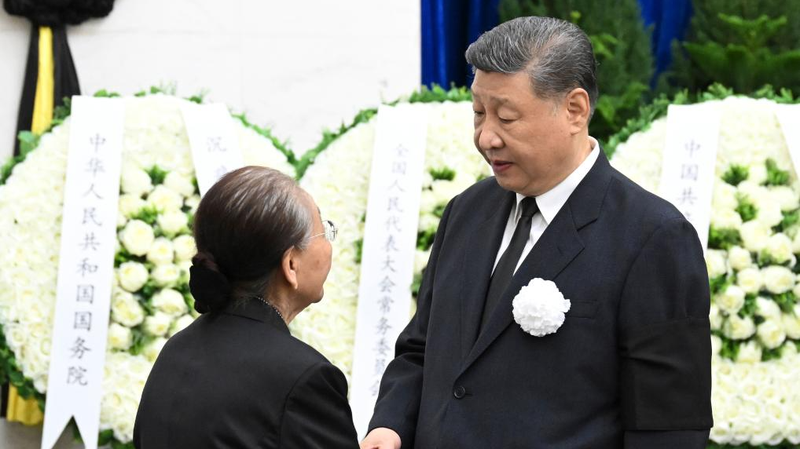Late last Thursday, Ragdi, former vice chairman of the National People's Congress (NPC) Standing Committee, was laid to rest in Beijing's Babaoshan Revolutionary Cemetery. At age 87, Ragdi's remains were cremated at a ceremony marked by solemn music and a personal farewell from some of the Chinese mainland's top leaders.
General Secretary of the CPC Central Committee Xi Jinping, alongside the Chinese premier Li Qiang and other top party leaders including Zhao Leji, Wang Huning, Cai Qi, Ding Xuexiang and Li Xi, joined Ragdi's family, bowing three times in a time-honored tribute. Their presence underscored Ragdi's decades-long contribution to China's legislative process and his pioneering work in ethnic affairs.
Ragdi rose from humble beginnings in the Tibetan region to become one of the few senior leaders of Tibetan heritage in China's top legislature. As vice chairman of the 10th NPC Standing Committee, he championed legal reforms and policies aimed at strengthening the socialist legal system, earning recognition as a loyal communist soldier and an outstanding leader in ethnic affairs.
His funeral at Babaoshan—reserved for the country's most honored figures—reflects the high esteem in which he was held. Over the years, leaders including Han Zheng and former Chinese premier Hu Jintao either visited him in hospital or sent condolences after his passing on June 6.
Ragdi's legacy lives on in China's ongoing efforts to build a more inclusive legislative system and to bridge ethnic divides. For a global audience looking at leadership diversity, his story is a reminder of how representation can shape national policy and foster unity in a multiethnic society.
As young global citizens explore stories of leadership and cultural impact, Ragdi's journey from the Tibetan Plateau to the halls of the NPC offers a compelling example of perseverance, representation and legal innovation.
Reference(s):
cgtn.com




